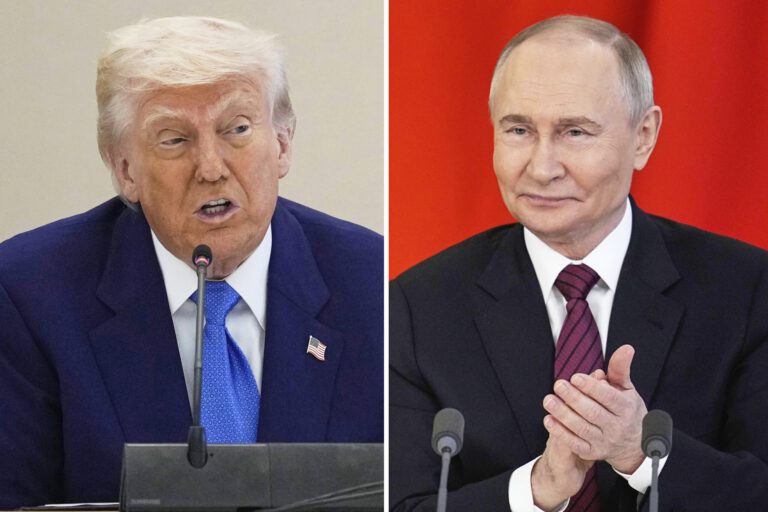Senators Optimistic About Sanctions Bill Against Russia
As Congress reconvenes following the Memorial Day recess, there is a palpable sense of optimism among senators regarding the passage of a significant sanctions bill targeting Russia and its allies. Lawmakers believe the escalating tensions with the Russian Federation could strengthen President Trump’s position in ongoing negotiations.
Bipartisan Support for Sanctions Legislation
In late May, Senators Lindsey Graham (R-SC) and Richard Blumenthal (D-CT) introduced a sanctions bill, gaining the support of 79 other senators — a notable achievement in an often polarized Congress. This proposed legislation aims to empower the president to impose sanctions on numerous government and non-government officials while also imposing staggering 500% tariffs on countries that engage in business with Russia.
"We think in the coming weeks we will see a vote on the floor," stated Senator Blumenthal, referencing Speaker Johnson’s supportive comments about the legislation.
Collaborations with the White House
Senator Blumenthal noted that he and Senator Graham would work closely with the White House to finalize some details of the bill, although he opted not to reveal specific changes at this stage.
Senate Majority Leader John Thune (R-SD) confirmed discussions with the administration about the bill, stating:
"We’re in conversations with the White House about that."
Strategic Importance of the Sanctions Bill
Senator Thom Tillis (R-NC), another co-sponsor of the bill, emphasized the legislation as an essential tool for the president in light of stalled negotiations with Russia and Ukraine.
"I’d vote for that bill every single day. I hope the administration will see that it’s a real enabler for them now that Putin’s true nature has really been exposed to the president," remarked Tillis.
Current Context of U.S.-Russia-Ukraine Relations
The White House has not yet provided a response to media inquiries regarding the bill. President Trump has recently expressed frustration with both Russian President Vladimir Putin and Ukrainian President Volodymyr Zelensky, as peace talks have drifted away from fruition.
- Key Developments:
- May Talks: Trump engaged in discussions with both leaders, with indications that Putin was open to a deal.
- Ukrainian Strategy: Zelensky publicly expressed readiness to negotiate and lay down arms.
Despite these overtures, real progress seems stagnant. Over the weekend, Ukraine escalated military operations by launching over 100 drones, successfully destroying numerous Russian aircraft within its territory.
The Path Forward
Lawmakers remain hopeful that the sanctions bill will come to a vote before Congress takes another week-long recess at the end of June. This optimism is driven not only by bipartisan support but also by the urgent geopolitical context that makes swift action critical.
In summary, the proposed sanctions bill serves as both a strategic lever for the U.S. administration and a collective stand against ongoing aggression from Russia. Continued support and collaboration among senators suggest that swift legislative action may soon be on the horizon.
For more insights into U.S. foreign policy and sanctions, check out articles from sources like Reuters and BBC News for relevant updates on the situation.


